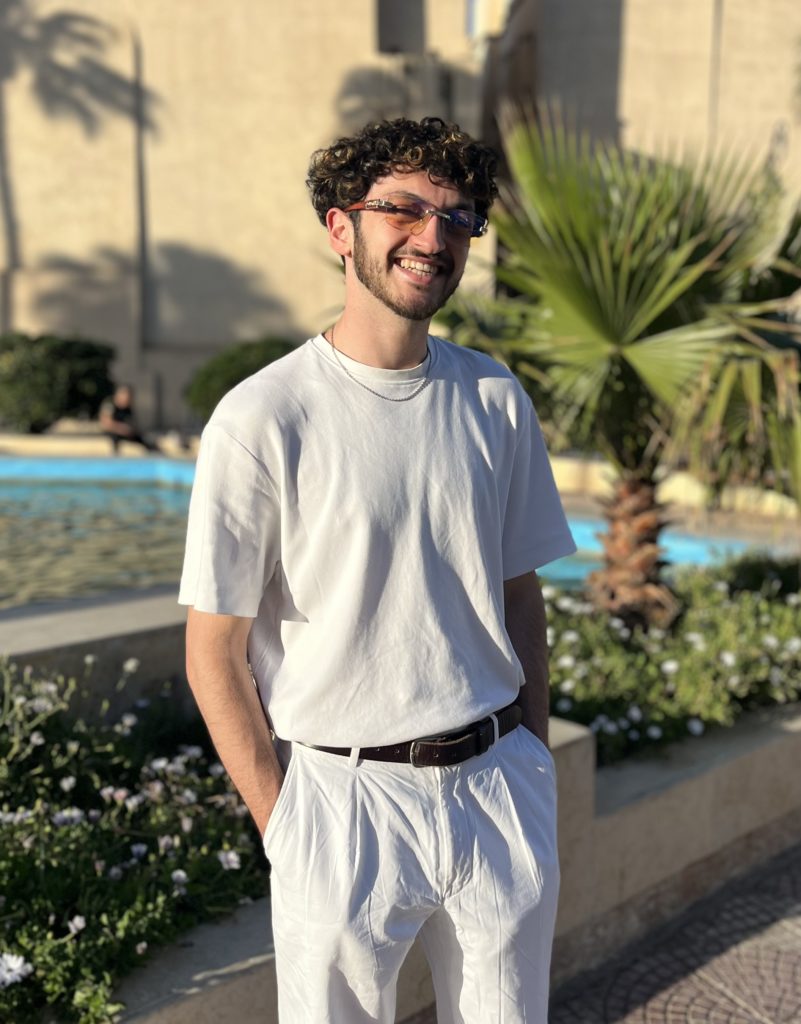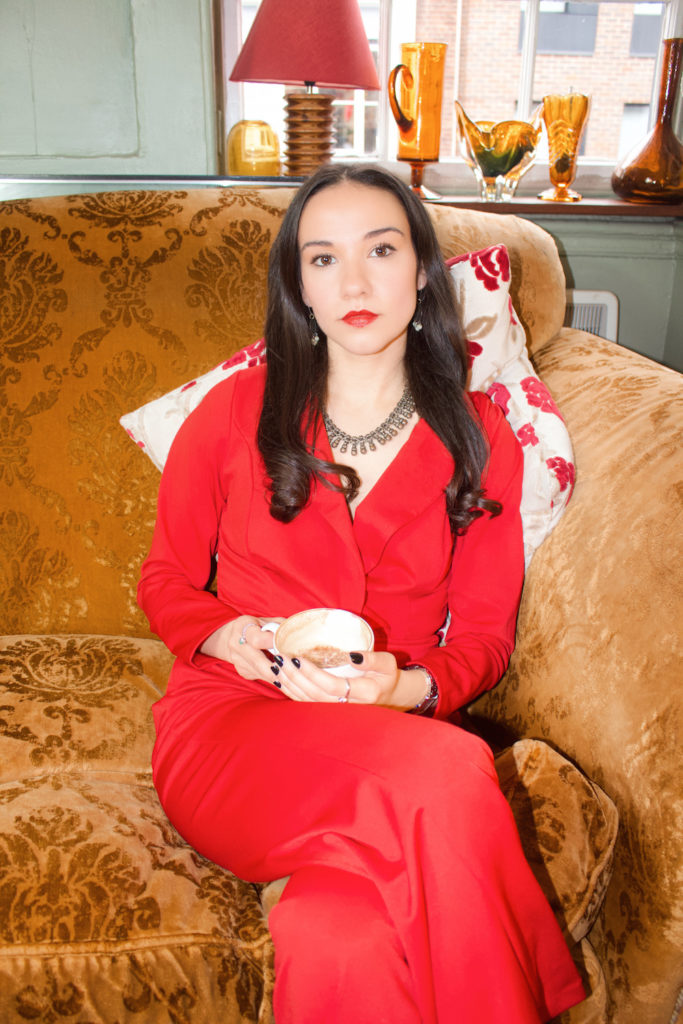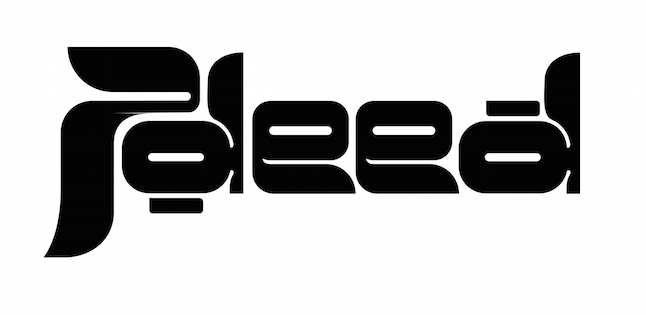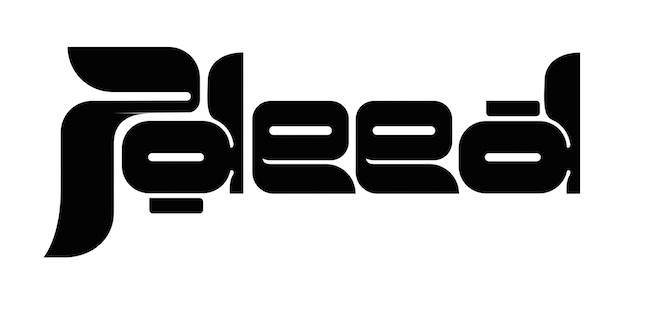
Social
Being half Arab : a search for identity
A few years ago, I was at a conference in Paris discussing Lebanon’s political situation. As the talk started, one of the speakers asked the Lebanese people in the room to raise their hands. I saw a bunch of hands rising around me, and wanted mine to join theirs. But it didn’t. I stayed put, with my hand in front of me, on the table. I didn’t move. I didn’t feel legitimate to raise my hand and proudly claim my Lebanese identity. No matter how much I felt Lebanese, no matter how much I had “proved myself” as a Lebanese person.
Growing up in France as a half Lebanese, half Serbian kid, I knew from a very young age that I wasn’t completely French. My ID was, my privilege was, but society had made it clear for me that it was about as far as it would go. I would feel it constantly, in simple ways. I would always laugh way too loud in public spaces, attracting suspicious looks before my friend would apologize on my behalf, throwing a “Sorry, she’s Lebanese”. I knew I wasn’t French, but I didn’t know what I was.
It took me a while to realize that I was Arab, until French society shoved it into my – very Arabic looking – face. But quickly, I understood it wasn’t going to be granted to me that easily. Lebanese people would tell me that I’m not a “real” Lebanese, Serbian people would tell me I’m not a “real” Serbian. If I didn’t feel French, I was never Serbian enough, and never Lebanese enough. So I decided to go to Lebanon.
By Emma Breidi

I was a young adult, almost still a teenager. As we landed, the second the plane touched the Lebanese ground, tears started running down my face. I wasn’t crying, my eyes were : it was a physical reaction, a feeling I was returning home.
I felt relieved, and everything in me started making sense, everything aligned. Began the construction of my identity as a Lebanese woman. As an Arab woman. A quest for identity shared by so many people around the world. Between stories of exile, uprooting and heritage, the place of mixed-race people in the world can be complex. In the tumultuous waters of those questions, the expression of our identities and our multiculturalism take different forms. I met with four half Arabs to exchange about their experiences, what it means to be Arab, and their sense of belonging.
THE ROOTS
For Salim, not knowing his roots and his family’s history pushed him to look for it. Born in Harfleur, a city in Normandie (France), from an Algerian Kabyle father and a French mother, he grew up in Le Havre and moved to Paris three years ago. Words are his instrument : cinema, music, poetry … Many different mediums for him to express his identity, his dreams and his aspirations. Salim’s grandfather was the treasurer of the National Liberation Front in Algeria, but in the late 50’s he had to leave for France in order to financially support his family. They lived for a few years in the slums of Le Havre where his father grew up. Not knowing his grandparents was the big regret of Salim’s life. “My dad never told us our origins, I don’t know if he was ashamed we were peasants, but he would make us dream and would tell me we were Samourais of the king of Algeria, or that I was the prince of the sun, or the prince of the desert. That’s when I knew I was from somewhere else.”
During the first 5 years of his life, Salim grew up in a hood in Le Havre near a prison. His dad eventually realized that it was not where he wanted to raise his kids. They then moved to the countryside with only white people, where they were the first Arabs. He grew up in the mix of those two cultures, between his Algerian family and his French one : “My dad raised us telling us we were French. France is our country and we can’t deny it ; but at the same time that we were also Algerian and shouldn’t forget about it”. But Salim didn’t recognize himself in the cliché of Arabs in France’s collective imagery and was upset with his arabic side, upset at Arabs for being too Arab. “I would felt that I didn’t match that, but I’m also not French. I felt different everywhere and as if I wasn’t at my place anywhere.” Though people from his countryside predominantly voted far right, Salim would fit in as he was matching the stereotype of the “good Arab”, being white, with straight hair and green eyes. “There were times where I didn’t want to feel too white. I was mad at my friends for being too white, mad at France for making me feel too French, mad at my family for not teaching me how to be Arab.”

Salim, Kabyle-French
Nassim also grew up in a predominantly white neighborhood. The 21 year old dancer, actor and singer was born and raised in Amsterdam from a Dutch mother and a Moroccan father. His grandfather moved to the Netherlands in the late 60’s for work when Nassim’s dad was 6 years old. They settled in a small town where they were as well the first Arab family to immigrate. Him and his cousins were the only Moroccan kids in their christian school- growing up, the only arabic influence Nassim had was from his Moroccan family: “growing up with my hair, my nose, my eyebrows, the way I looked, I noticed I was Arab but it wasn’t really affecting me. I knew it especially because we had different holidays and, at school, the kids would be interested in ours because they had never heard about them. It wasn’t necessarily a negative thing”.
But when he started studying in Amsterdam, he became more aware of his origins, especially because as a dancer the way people see him and how he would represent himself became very important : “I started noticing that I would always get cast in the “ethnic” role and realized this is how people see me.” If growing up Nassim would say he was Dutch, it then shifted later on, as his origins and his identity’s construction raised various issues.

Leyla, Syrian-Russian
Growing up, Leyla identified more with her Russian side than her Syrian side. Her dad’s family were originally Druzes from the Lebanese mountains and he met her mom, who is Russian with some Ukrainian heritage, in Russia where they were both studying civil engineering. “They got married and he took my mom on an adventure in the Middle East”. They first moved to Tripoli in Libya where Leyla was born, and then moved to the south of Syria to her dad’s hometown. Growing up in Syria, Leyla would spend most summers in Russia and learned Russian with her mother. She left Syria in 2013, lived for 7 years in Dubai and now lives in Barcelona where she works as an architect and a multidisciplinary creative in art, data and urbanism.
Growing up, she didn’t want to live in Syria and felt watched and judged by the closely knit and observing society. She felt many limitations were put in her way as a woman : “I had very strong rejection towards all of that and I was trying to be extra independent. I was allowed to do a lot more than other Arab girls.” If she never felt at home in Syria because she was “the girl with the Russian mom”, she never felt at home in Russia either because she was always treated as a foreigner, a feeling shared by many mixed race people.
Sarah was born and raised in London from a Palestinian father and an Irish catholic mother raised in Scotland. “My father, because he’s Palestinian and Palestinians have been displaced so many times, was born in Tiberias, but then was displaced to Jordan. His family went after to the Golan Heights to start a new life but were displaced again in 1967 at the moment of the war with Israel. Her dad then went to Algeria for one year and finally came to London.” She told me about her father’s love for London – despite Britain’s history and their implication in the chaos in the Middle East ; and hers : “I am very much a Londoner.”
Based there, she works as an actress and does writing and presenting. “Though I’m a Londoner, I strongly identify as Palestinian-Irish and I always knew we were Palestinian. My dad was good at not letting us forget that. Even though he was keen to assimilate, he was never afraid to explain us the social injustice issues.” Her dad was part of Arab communities in London and had a lot of friends from Palestine, Syria, Jordan and all over the Arab world; he brought a lot of Arab influence into her household, in particular, music. But growing up, Sarah didn’t have any Arab friends of her age and felt misunderstood and isolated, as she didn’t have anyone to share her cultural references with. A loneliness that she remediated later on as she became an adult : “I do now have a lot of Arab friends.”
TRANSMISSION AND HERITAGE
One of the first things people ask when you tell them you’re mixed race, is if you speak the language. For many people that aren’t mixed race, language is a marker of belonging and the lack of this transmission is often misunderstood and questioned, shoved into our faces as proof of our illegitimacy. Sarah, Nassim and Salim, like many others, didn’t have the chance to learn Arabic properly. “I think it’s the mixed races experience, that sometimes you lose something, and very often it’s the language that gets lost first” tells me Sarah. As a kid, her dad tried to teach her, “he would take me to school every morning and teach me vocabulary about the things we would see on our way to school. That 15 minute window driving to school was my only glimpse into the Arabic language.” But it wasn’t enough for her to learn properly. Though she felt frustrated, she never resented her dad and eventually learned by herself. Salim also knew a few words as a kid, taught by his Kabyle family, but then it got lost. He also started taking classes as an adult: “I really wanna learn the language and my culture”. For him, the transmission of his culture growing up passed mostly through music. “I think the first time I felt really Arab and loved it was when we would listen to CDs of Souad Massi in the car when I was kid. At first I didn’t like it, and I ended up loving it.”
The transmission of our culture and background is also passed through the home country. Nassim grew up going to Morocco every summer and slowly stopped going as his family wanted to travel to other places. For five years he didn’t go, until last Christmas, when he went with his whole family. “It was different because I was older and my whole life changed. I was a completely different person than I was 5 years before, so it was like meeting Morocco again.” He had mixed feelings about it : on one hand he really loved the nature, the culture, the landscape and the people, but on the other hand he had to be very cautious about how he looked, what he was wearing, and the way men were looking at his younger sister ; a cultural shock compared to Amsterdam where everybody can wear and does what they want to. “Growing up here I had my own identity, and suddenly my identity wasn’t safe”. He also felt the shift in his family’s dynamic in the context of Moroccan culture : “Suddenly I was the son of my father instead of my own person, my mother was the wife of my father instead of the strong woman she is.”

Sarah, Palestinian-Irish
Sarah’s love for the Arab world was first found through Lebanon, as she studied in Beirut. “Because Palestine is under occupation it’s very complicated to enter and travel freely, so my closest in was Lebanon”. She loved it and felt even more Arab and proud of who she is. The first time she was able to go to Palestine was in 2014 when she went by herself. “Obviously you see a lot of injustice and sadness. But I felt even prouder to be Palestinian. People were so hospitable, generous, kind and welcoming. Especially the women and girls I met. They were so educated and had an obsession with learning. I found that very empowering, especially as in the West there’s a lot of misconceptions about what it means to be a woman in the Arab world. Some of them are based on truth, but it also negates the amazing resistance of Arab women and it’s very patronizing.” She told me she was very amazed by the Palestinian’s strength and resilience, their creativity in terms of resisting their circumstances and the occupation, and their inventiveness, as she was volunteering in a cinema in Jenin and also visited a few theaters. Since then, she went again in 2015 with her dad, and in 2022 when she made the documentary “The holy land and us”, broadcasted on the BBC.
For Leyla, going back to her home country is a complicated issue. “The war played a big role in me wanting to disconnect with anything that has to do with Syria until I managed to process everything and recover.” She hasn’t been back to Syria in ten years, and even though she misses some places and her memories, she knows that nothing is how it used to be. “I would love to take my new friends there to show them a piece of my life, but for me it’s a chapter that I have somewhat left behind…maybe one day I will be able to go back.”
Salim never went to Kabylie growing up as his dad was working a lot and was afraid they wouldn’t have enough money. He would always push away going there and when they finally could go, issues of terrorism in the Kabyle mountains made it too dangerous for them to go. Salim also felt his dad had some resistance due to his family’s story: “I think when you lose your parents, if you didn’t grieve them it becomes hard to go back to their graves. But for me it was all I wanted. I grew up dreaming about Algeria and idealizing it.” His dad didn’t go there for ten years, so when Salim decided to go he brought his whole family : “I wanted my first time to be with my dad and see the country through his eyes.” They went to Chabet, the village of his family and then to Algiers. “It felt like my dad never left. I discovered that he actually spoke Kabyle very well. It’s as he found himself again the moment he landed, and it was beautiful.”
For Salim, this trip was a way to find and discover his identity: “I think I merged with my second self. Before I was two persons, and then I merged, and I felt better.” He also realized how privileged he was growing up in France as he saw his family living in precariousness. He remembers one anecdote when his cousin told his 3 year old brother “You’re gonna go with uncle to France?” and the kid answered “No me harraga”. Harraga is a term to designate people who take the sea to go to Europe and often die on the way. “To think that a 3 year old knows that, you realize how different our lives are.”
CHOOSING IDENTITIES
With his trip to Algeria, it’s also his family’s history that Salim reconnected with, knowing it was crucial in the construction of his identity. “I did something that was worth more than saying ‘wallah’ every sentence to feel Arabic : I learned about my origins.” For a contest for a cinema school on the theme “the source”, Salim decided to take his genealogical tree and dig in to understand how his Arabic origins define his spirit, his soul, his body. To understand why he has green eyes, has a short temper and craves spirituality.
By retracing all of that, it made him reconnect with Islam and his grandparents, and made him feel whole. As a musician, he brought Arabic influences into his art, but also found a certain freedom in being half Arab and half French as he can tackle subjects that can be taboo in the MENA and hard to talk about as an Arab man, such as love and sexuality. Being half Arab also means we can free ourselves from certain expectations and pick what we want from our cultures. Leyla sees things in the Syrian culture that she likes and others that she really dislikes. “It’s really hard to say if I feel Arab. I do fight everyone to tell them Syrian food is the best, but I don’t feel Arab or Russian, more a mix of everything. My identity is everything and nothing at the same time.” She expresses her gratitude for her mixed background and its rich culture as it built her character, gave her interesting stories to tell, more depth of character and a less superficial understanding of the world. “I feel international, an actual nomad in spirit. I can go anywhere and adapt. If I have to say a word, I would say I feel Mediterranean.”
For Nassim, defining his identity is also complex and is still a question in process, but mostly a question imposed by people: “Moroccan people don’t see me as Moroccan and Dutch people don’t see me as Dutch”. If he identifies a lot with the Dutch culture, the way people treat each other and the values people have, he also sees a lot of traits from his father and his family in him : the short temper, the very emotional reactions and the drama. “I guess I don’t really know how to feel Dutch, how to feel Moroccan. Especially as a dancer, I am so much more, I am a body that flows, I am emotions, and so many other spiritual things.”

Nassim, Dutch-Morrocan
When I asked Sarah if she identifies as Arab she told me she always felt Arab, but in the last years she got a wider understanding of what it means and learned more about the Arab world, the indigenous people, the diversity and the identity of being Arab. “There is a lot of racism and misconception toward Arabs. Growing up, I felt like being Arab wasn’t good. So when you’ve been told that something is lesser, less civilized, less cultured, and not to be celebrated, you either shun it and distance yourself from it, or you run towards it and find ways to embrace and celebrate it.” Through cultural events in London she met a lot of Arabs over the years and found amongst this diversity a lot of common ground and a shared collective identity : “We can bond over and talk about what it means to be Arab on our own terms, rather than other people telling us what we are.” If she is a Londoner at heart and has a British passport, Sarah emphasizes that she doesn’t have English blood and doesn’t identify as English : “I’m now very confident to say I’m Palestinian-Irish, and no one can challenge me on that. I’m very proud of being Arab, proud of my roots, my Palestinian heritage and culture.”
Feeling Arab or not is a tricky question in the Arab world, especially from one civilization to another. Salim being Kabyle, he grew up being told by people he was Arab until his dad told him one day they weren’t actually truly Arab. “I thought : what the fuc* is this trickery? Is it the Truman show ? What am I then ?” But in the construction of his identity, Salim embraced his link to Arab cultures, finding them insanely rich. Now he feels part of both the Algerian and French cultures, finds himself belonging to both and in a balance that makes him feel whole: “I think it is a huge richness to be mixed and we shouldn’t be ashamed of it. To search for myself and discover myself in my roots is the best thing that happened in my life, and it allowed me to be myself.”
Because at the end of the day, it is all about being and feeling our true selves, no matter how we identify or to what. Our identities are not imposed on us. They are not a debate for society to have or people to have an opinion on. Our faces can be multiple and take so many different shapes. We have the freedom to choose, invent, reinvent and create our own space, our own place, our own culture. Together we create our own identities. Half of everything, feeling most of the time like nothing, realizing we’re fully anything. Anything we want to be.






0 comments